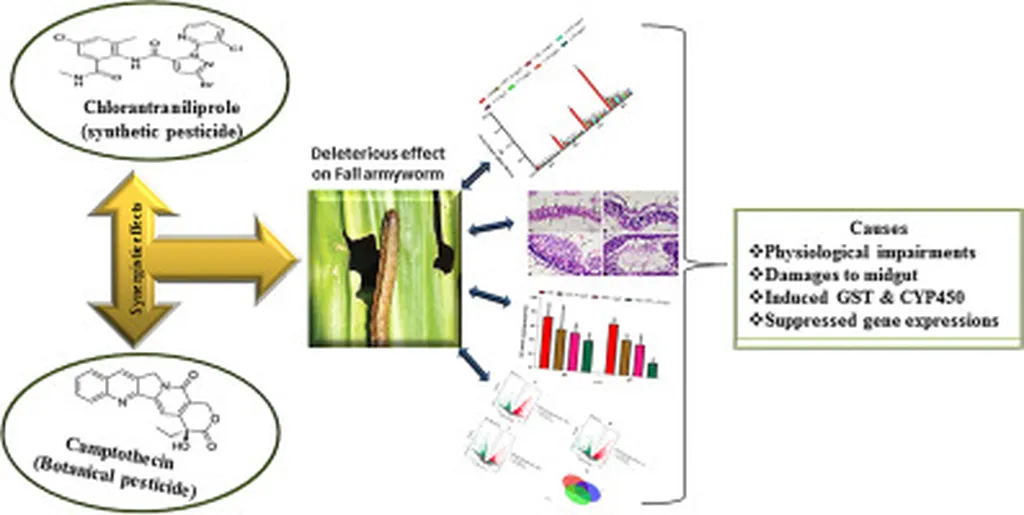In the relentless battle against the fall armyworm, Spodoptera frugiperda, a formidable foe to global agriculture, researchers have uncovered a promising new weapon: chlorantraniliprole. This insecticide, already known for its efficacy, has now been shown to offer a sustainable and effective means of controlling this migratory pest, particularly in maize crops. The findings, published in the journal *Frontiers in Agricultural Science* (formerly known as *Frontiers in Plant Science*), open new avenues for integrated pest management strategies.
The study, led by Nourhan A. El-Said from the Department of Economic Entomology and Pesticides at Cairo University, evaluated the lethal and sublethal effects of five insecticides on adult S. frugiperda. Among these, chlorantraniliprole emerged as the most toxic, with a lethal concentration (LC50) of just 1.29 mg/L. This high toxicity is a game-changer, as it suggests that chlorantraniliprole could be a potent tool in the fight against this destructive pest.
“What makes chlorantraniliprole particularly exciting is its ability to not only kill the pests but also to disrupt their life cycle,” El-Said explained. “Sublethal exposure significantly reduced larval and pupal development durations, decreased pupal weights, and shortened adult longevity in the offspring. This multifaceted impact is crucial for long-term pest control.”
The research also revealed that chlorantraniliprole had minimal induction of detoxification enzymes in the pests. This is a significant finding, as it suggests a lower likelihood of rapid resistance development, a common challenge with many insecticides. “This minimal enzyme induction means that chlorantraniliprole is less likely to provoke resistance in the pest population, making it a more sustainable option for long-term use,” El-Said noted.
The implications of this research are vast, particularly for the agricultural sector. The fall armyworm is a major threat to maize crops, which are a staple food source for millions worldwide. Effective control of this pest can lead to increased crop yields, food security, and economic stability for farmers. Moreover, the use of chlorantraniliprole in “attract-and-kill” strategies could revolutionize pest management, offering a targeted and environmentally friendly approach.
As the world grapples with the challenges of climate change and increasing pest pressures, innovative solutions like this are more important than ever. The research by El-Said and her team not only provides a new tool in the fight against the fall armyworm but also sets a precedent for future developments in sustainable pest control. By integrating such advanced strategies, the agricultural sector can better adapt to the evolving threats and ensure food security for generations to come.

